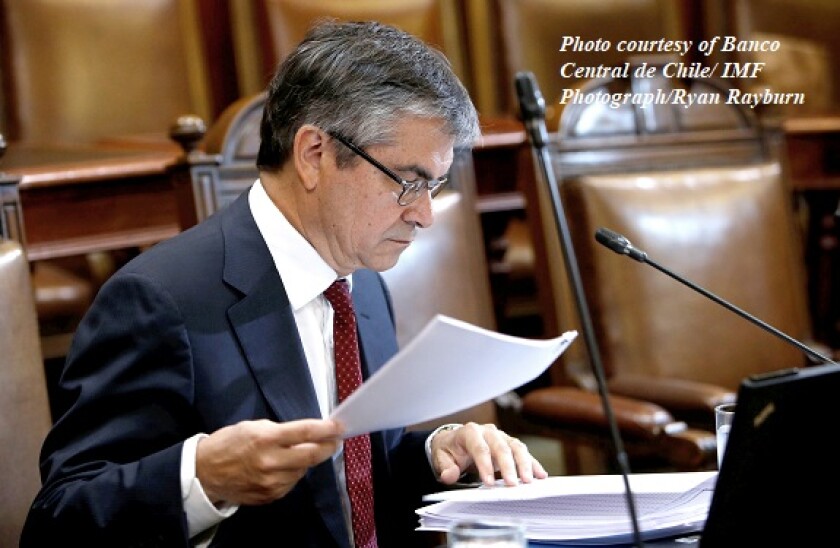As the crisis management capabilities of central banks everywhere are tested, Chile has had a particularly challenging ride.
When Covid-19 battered financial markets in March 2019, Banco Central de Chile had already earned plaudits for calming markets amid unprecedented social unrest in October and November 2019.
This scenario “was particularly challenging because it was so unexpected, and arrived with such speed and violence”, says the bank’s governor, Mario Marcel Cullell.
Then came Covid-19, but this was not the end of the volatility: in July a bill was passed to allow Chileans to withdraw 10% of their pension savings.
“Chile’s central bank has faced three different crises in the past year and had no way to foresee any of them,” says lvaro Vivanco, Latin America strategist at NatWest Markets. “Yet ever since November, it has shown the ability to intervene at the right time, using spot and forward intervention and providing liquidity for local institutions.”
Amid the crises, the bank has cut interest rates to a record low of 0.5%, announced an FX intervention programme, and carried out bank bond purchases.
“Chile’s central bank was quick off the mark in recognising the nature and severity of the shock and using the monetary policy lever as much as possible,” says Alberto Ramos, head of Latin America economics at Goldman Sachs.
William Jackson, chief EM economist at Capital Economics, notes that — while many LatAm central banks have acted “admirably” — “the speed with which Chile’s acted and the clarity of its communications put it above the rest”.
As it dealt with a series of shocks, governor Marcel Cullell says, the central bank needed to ensure it would “not find itself walking into a dead end”, so the bank adopted measures to “broaden policy space”.
Most notably, Congress passed constitutional reform to allow the central bank to undertake government bond purchases for the first time ever.
So far, Chile has not had to use its newfound ability to buy government debt. Shelly Shetty, head of Latin American sovereign ratings at Fitch, notes that — just as with the FX intervention — the bank has not needed to use QE because “the signalling worked”.
But the move shows that the bank is planning ahead.
“QE programmes are largely untested in EM countries,” says Shetty, “but Chile — with very significant financial penetration and strong institutions — has the credibility required to implement these instruments if the need arises.”
